
3 Stories of Secrets Kept by Children That Changed Family Lives Forever
Family secrets often hide just beneath the surface, slowly shaping relationships in profoundly unexpected ways. Unraveling these deep mysteries, sometimes through the innocent eyes of a child, can lead to painful confrontations but also to profound revelations and emotional journeys toward healing. In this compelling collection, we explore three distinct stories where hidden truths come to light, forever altering the lives and foundations of those involved.
From a seemingly heavy backpack hiding River's secret acts of kindness, to a pair of conspicuous blue shoes Paige notices in the background of her husband’s photo, and a secret, locked box Emma discovered in her father’s drawer, these tales highlight the enduring power of empathy, the sting of betrayal, and the unbreakable, complicated ties that bind families together.
1. My 4-Year-Old Daughter Started Drawing Dark Pictures after Accidentally Discovering Her Dad’s Secret
When her typically vibrant daughter exhibits sudden, unusual behavior and starts drawing menacing pictures, Jennifer questions everything. Eventually, her young daughter Emma tells her the truth—that she found a hidden box of her father’s shocking secrets.
My daughter, Emma, has always been my little rainbow child; she loves wearing the brightest colors, speaks in cheerful exclamations, and her favorite things to draw were always unicorns and butterflies. She was pure, uncomplicated light.
But recently, there has been a noticeable, worrying change in her entire demeanor. She became withdrawn, she hasn’t been eating properly, and she constantly asks to sit outside alone, staring blankly.
At first, I didn’t think much of it, rationalizing that Emma constantly goes through short phases common to her age. But then, her teacher, Mrs. Silverton, called me in for an immediate parent-teacher meeting. Emma was only in kindergarten, but the school prided itself on proactive emotional check-ins with parents.
“I truly didn’t want to alarm you, Jennifer, but there’s something genuinely concerning going on with Emma’s emotional state.”
She pulled out a thin yellow file and showed me a series of recent drawings by Emma—all of them dark, shadowy, filled with heavy black scribbles, and menacing shapes that looked like jagged teeth or broken houses. It was chilling to see, and completely unlike my daughter’s normal work.
I drove home from the school in stunned silence. I knew something was wrong with Emma, but seeing the physical manifestation of her distress in those drawings hit me hard.
Later, while I made simple noodles for our dinner, I decided it was time to talk to Emma directly.
“Sweetheart,” I said softly, sitting next to her. “I went in to see Mrs. Silverton today.”
“Really? Why?” she asked curiously, but without her usual spark.
“She spoke about the new drawings you’ve been doing, and how different they are from the usual happy ones. Are you feeling okay?”
She looked down at her bowl of noodles, twirling her fork through the strands—her response was strained silence. The atmosphere thickened with her suppressed worry.
Finally, she spilled the beans.
“I found Daddy’s secret,” she said quietly, her little voice trembling.
“What secret, honey?” I asked, leaning in, my heart starting to pound.
“Come, I’ll show you, Momma,” she said, jumping up suddenly from the table, a nervous energy propelling her.
William, my husband, lives with Emma and me only part-time because of his high-travel sales job. He often has to work away from home, and the constant traveling, he claimed, was exhausting. So, he had decided to rent a separate apartment near his main territory for when he worked late or had early meetings.
When Emma led me straight into William’s home office, a room I rarely entered, I felt a knot of cold dread tightening in my stomach. I wondered what my innocent daughter had possibly discovered.
I watched as she went directly to William’s tall wooden desk and opened the top drawer, pulling out a heavy, ornate wooden box.
“I saw this when I came looking for crayons last week,” she whispered.
Emma quickly gave me the box before turning and bolting back toward her room, unable to handle the discovery again. The moment I lifted the lid and glimpsed inside, my entire world—the life I had built on trust and compromise—crumbled into dust.
Inside were photos—scores of them. Images of William hugging, kissing, and posing with another woman and a set of three beautiful, unfamiliar children, aged between about two and seven years old. They looked like a complete, happy family.
My emotions somersaulted violently from shock to a paralyzing betrayal to a raw, burning heartbreak.
Beneath the pile of photos was a small, well-worn leather notebook with numbers scribbled in it. It seemed like a meticulous replica of the emergency notebook I kept in my own handbag.
I knew, with a sudden, devastating clarity, that I needed to confront William, but I was too overwhelmed to deal with the entirety of the situation. All I knew immediately was that Emma needed stability and an end to this unspoken anxiety. Her well-being was my absolute priority.
I returned everything precisely to the box and stored it back on the desk, my hands shaking. As I left the room, I found Emma standing silently in the hallway, her eyes wide with worry and profound confusion.
“Let’s get you to bed, my love,” I said, pulling her into a tight hug. “I promise you, we are going to be just fine.”
The next morning, I dropped Emma off at school, kissed her goodbye, and immediately went back home. I took another look at the small, crucial notebook and, with a steel resolve I didn't know I possessed, I called Mia, the woman in the photographs. I pretended to be their son’s new kindergarten teacher calling about an enrollment issue.
As betrayed and sick as I felt, the deception was almost seamless, thanks to William’s detailed notes.
“Hang on,” Mia told me after a few minutes of conversation. “Let me speak to my husband, William.”
I heard William’s voice on the line—calm, cheerful, confirming my very worst fears as he discussed "their son's needs." I hung up immediately, physically sick.
As the hours dragged on and the time to pick Emma up edged closer, I realized I couldn't face her until I had some answers. I needed to move.
I picked up the phone again, called Mia back, and told her everything: who I was, who Emma was, and what I had found.
She was just as shocked, heartbroken, and infuriated as I was, revealing that she had been completely unaware of Emma and me. She thought she was William's only wife.
Next, I called my lawyer. I needed to end my marriage to William immediately. Emma deserved a stable, honest life. Mia deserved better, and so did her children. And I deserved much, much better, too.
A few weeks passed, and Mia came over to my house. We sat and spoke for hours, piecing together the timeline and uncovering the full, horrifying truth: William had been running two parallel lives, two separate families in different towns for years, meticulously keeping us apart to keep his monstrous lie going.
Our lawyer quickly took on both Mia and me as clients, ensuring we would seek justice from William. Crucially, we also agreed that the four children needed to get to know each other as siblings—because they were siblings, regardless of the betrayal of their father.
Ultimately, Mia and I united against a man who had profoundly manipulated both our lives, unveiling a story more convoluted and cruel than any soap opera plot.
Our lawyer ensured that we both received a substantial settlement from William—although we could never fully figure out how William had managed to legally marry both of us and kept the lie going for so many years. I’ve also gotten Emma into consistent play therapy to ensure she was healing from this traumatic experience. But if I’m being honest, I think the best therapy was the weekend playdates where Emma got to know her half-siblings. Seeing the bond bloom between the children William tried to keep separated was our final, quiet victory.
2. My Daughter Kept Taking an Extremely Heavy Backpack to School – I Realized Why When I Finally Met Her Bus Driver
Life as a single mom in the suburbs is a tightrope walk between joy, coffee, and a constant juggling act. I’m Juliet, a financial advisor, striving tirelessly to build a career robust enough to secure a bright future for my nine-year-old daughter, River.
Since my husband deserted us and fled to a new state when River was only a toddler, the entire brunt of parenting fell solely on my shoulders. “At least this way,” my mother often said, feeding River, “you don’t have to worry about your daughter learning Richard’s lying and cheating ways. She’s all yours, and you can mold her exactly the way you want.”
A few weeks ago, we were sitting down to dinner together, and River began excitedly telling me all about the latest news and activities at school. She went into a detailed explanation of the after-school clubs and felt strongly that she should join one.
“Okay,” I said, genuinely pleased by her growing interest in school activities and peer groups. “What are you thinking about? Drama? Coding? Art?”
River sat and thought about it for a serious minute, meticulously picking at her broccoli.
“I think Art Club,” she decided with a nod.
“We’ll go out and buy you a huge selection of art supplies tomorrow morning,” I promised, already making a mental note of the craft store hours.
I couldn’t mask my profound relief that River would have something constructive and supervised to occupy her time while I was still wrapping up my demanding day at work.
One morning, River, brimming with newfound responsibility and independence, declared that she wanted to start packing her own lunches. I was standing at the counter sorting out River’s breakfast of cereal and juice while assembling her sandwich.
“Mom, I think I should start packing my own lunches,” she stated firmly, watching me add the turkey slices to her sandwich.
“That’s a great idea, River. I’m so proud of you for taking this step,” I said, encouraging her self-reliance and growth. “But you’ll have to ask me for help when it comes to anything requiring a sharp knife or the stove.”
Our morning routine continued like clockwork. We had breakfast together, and I walked River to the front of our yard, where the big yellow school bus picked her up promptly.
But a few days ago, something strange changed.
As we got to the wooden bench my father had installed in our yard years ago, I asked River to put her enormous backpack down so I could help her zip up her heavy jacket.
Moments later, as I pulled the jacket closed, a slight, almost imperceptible wince escaped her when my hand tapped her back.
“What’s wrong?” I asked immediately, turning her around.
River shrugged her shoulders, quickly dismissing it as just the weight of her schoolbooks causing temporary discomfort. But the ingrained mother in me stirred with immediate, protective worry.
“Are you sure you’re okay? That seemed like it hurt you,” I probed, concern lacing my tone.
“It’s just the books, Mom,” my nine-year-old insisted. “They’ve been really heavy this week,” she brushed off, expertly avoiding my gaze.
“Do you want me to take you to school then, so you don’t have to carry that?” I asked her, checking my watch for the time.
“No, thank you,” River said firmly, just as the yellow bus loudly honked around the corner.
Driven by an escalating concern and curiosity, I got to my office and called the school.
“No, Juliet,” the secretary on the line said with confusion. “We actually don’t allow the kids to take most heavy textbooks home because of the risk of back injuries. So, they use them only here at school.”
Then what, exactly, was River taking to school every single day?
I decided to leave work early, submitting a request for half a day off. I wanted to pick River up and talk with her about whatever secret she was keeping.
River was a responsible child, and I knew deep down she wouldn’t be doing anything bad. But if she was hurting herself in some way by carrying something heavy, I needed to understand why and what was going on.
I parked my car next to a group of waiting parents and waited to see River run out of the school doors. I followed her to the correct school bus that did our route and caught a snippet of conversation between River and the driver, a kind, middle-aged man I’d only seen from a distance.
“Did she like everything inside?” River asked the driver urgently.
“She absolutely loved it, River!” the driver said warmly. “Are you absolutely sure that it’s okay that you’re bringing so many new things for my Rebecca?”
“Yes,” River said with quiet conviction. “As long as Rebecca is happy.”
Who is Rebecca? I wondered to myself, stepping out of the car.
“River!” I called out as other students started to climb onto the bus steps.
“Mom!” she exclaimed, her face a mask of shock when she saw me standing there. “What are you doing here? I thought you were working!”
“I left work early to surprise you,” I told her, my eyes fixed on the immovable boulder that was her backpack, which was now suddenly strapped to her shoulders and seemed much lighter than usual.
“Honey, where are all your things? Your art supplies and heavy books?” I asked.
River hesitated for a long moment as we slowly walked toward the car.
“I’ll tell you everything at home, Mom,” she finally said.
Taking her hands in mine on the front porch, I knelt to her level, making sure we were eye-to-eye.
“Tell me what’s going on, right now. You can tell me anything, River. And you can trust me completely,” I encouraged her, trying to soothe her evident distress.
Through a flood of immediate tears, River told me everything.
The new bus driver, Mr. Williams, with whom she had quickly made fast friends on the morning route, had a young daughter who was battling leukemia.
“I saw her photo right next to the steering wheel, Mom,” River explained, wiping her eyes. “Mr. Williams makes me sit on the seat behind him because I’m so small. So when I saw the photo, I asked him who the little girl was.”
I sat back and let River continue the quiet, heartbreaking story. She clearly needed to let the full truth out—and feel seen and heard without judgment.
“Mr. Williams said that Rebecca is only two years younger than me, and that she hasn’t been in school at all this year. Because she’s stuck in the hospital and misses playing.”
I nodded, gently urging her on.
“So, when we got all the art supplies for school, I took two of everything so that I could make a big pack for Rebecca, too. And even some of the clothes I grew out of, because she told me the hospital is always so cold.”
“You’ve actually spoken to Rebecca in person?” I asked, surprised by the boldness of this secret.
“Yes,” River said, tears streaming down her face again. “Mr. Williams has been taking me straight to the hospital when I told him I wasn't joining the after-school clubs.”
River sucked in her breath, holding it until I spoke, waiting for the expected punishment.
“Oh, baby,” I said, pulling her into a fierce, admiring hug. “You should have told me you were doing something so incredibly kind.”
I was torn between absolute admiration for her deep compassion and a profound fear for her safety and the secrecy. We agreed immediately to meet Mr. Williams at the hospital later that evening to discuss her visits and ensure her safety. Upon meeting him, his genuine sincerity and overwhelming gratitude immediately washed away my fears about his intentions.
“Thank you so much for allowing and supporting River in this tremendous act of kindness,” Mr. Williams thanked me, assuming I had been fully aware of River’s actions and simply giving permission.
“Your daughter is one of the most wonderful, compassionate souls I’ve ever met, Juliet,” he said earnestly.
“Thank you,” I said, feeling a surge of pride unlike any other. “I would love to do more to help Rebecca.”
Mr. Williams smiled at me, his eyes full of tears, and led us down a long, quiet hallway to Rebecca’s brightly decorated hospital room. The rest of the evening was spent in laughter and shared stories as River and Rebecca played with the new art supplies, their joy echoing softly off the quiet hospital walls.
Watching them, I realized that my own daughter had taught me a valuable, life-changing lesson in profound, selfless compassion, one that I would cherish and nurture as she continued to grow into such a remarkable young woman.
3. I Overheard My Husband Asking Our 4-Year-Old Son Not to Tell Me What He Saw – Days Later, I Uncovered the Shocking Truth Myself
Paige loves her successful career, even if it means being away from home a lot. However, when she returns from a business trip, she overhears a cryptic, unsettling conversation between her husband and her four-year-old son, Mason. Little does she know—the very foundation and thread of her marriage are about to unravel dramatically.
When I think about the foundations of my life, there were three things that always stood out, solid as rock: my husband, Victor, my beloved son, Mason, and my career in marketing. Despite the severe storms that Victor and I weathered together, including four heart-wrenching miscarriages, we somehow emerged stronger and more fiercely committed than before the grief hit.
Then, a pregnancy test came back positive again. And three months later, our baby was still thriving in my womb.
So, when Mason finally came into our lives, it felt like our shattered dreams had finally been meticulously pieced back together. Mason became the absolute one thing that we focused on unconditionally. Whenever our son needed us, we dropped everything, prioritizing him above our own demanding schedules.
“I don’t want a babysitter or a nanny taking care of our son on a daily basis,” Victor stated one day while he was cooking us dinner. “We need to do this ourselves.”
“If you can handle the difficult daytime shifts while I work, then the evening and early morning shifts are all mine,” I compromised, working out a schedule that seemed to protect Mason from too much outside intervention.
But little did I know, it was precisely during my necessary absences for work that the fabric of our family began to silently unravel.
The day that changed everything was like any other return trip. I took a cab directly from the airport, exhausted but eagerly anticipating the moment I would finally see my husband and son.
When I walked in, the house was oddly quiet, with a muted shuffling sound clearly coming from upstairs.
Victor’s voice was hushed but urgent—the same low, tense urgency that Mason associated with real bad behavior and immediate bedtime.
“Buddy, you’ve got to promise me one thing, okay?” Victor said.
“Okay,” Mason muttered innocently. “What is it, Daddy?”
“You’ve got to promise me that you won’t tell Mom what you saw in here.”
“But I don’t like secrets,” Mason protested softly. “Why can’t I tell Mommy?”
“It’s not a secret, Mason,” he lied smoothly. “But if we tell Mommy, it’s going to make her very, very sad. Do you want Mommy to be sad, buddy?”
“No, I don’t want her to be sad,” he quickly conceded.
I walked quietly into Mason’s room and found Victor sitting stiffly on his bed, while our son sat on the floor surrounded by his toys.
“What’s going on, you two?” I asked, pushing aside the knot of worry as Mason immediately leaped into my arms for a hug.
“Nothing, honey,” Victor said, giving me a suspiciously quick wink. “Just a boys’ chat about superheroes. Welcome home, we missed you.”
The week-long business trip that followed was torture. I loved my job, and I loved working on the new campaign we were running. But I deeply hated being away from Mason for so long, especially after that conversation. Victor’s daily photos of Mason were my only solace until one of the photos brought about more terrifying questions than comfort.
Victor had sent a series of photos to me—in each of them, my son was playing happily with a brand new, expensive-looking toy. But in one of the photos, taken from a low angle in our living room, there was a distinctive pair of blue suede shoes clearly visible in the background, tucked by the ottoman. They were not mine. They were elegant, small, and distinctly feminine. And yet, there they were, in my living room, while I was miles away.
I knew, with cold certainty, that the moment I entered my home on Friday, everything was going to change forever. Either my husband would confess there was someone else in his life—or that there was, improbably, a nanny with expensive taste looking after our son.
I walked into my son’s room first, after the taxi dropped me off. He was just waking up from his nap, rubbing the sleep from his innocent eyes.
“Hi, baby,” I said, kissing his soft head. “Dad’s not downstairs?”
Mason looked at me for a moment too long, a deep shadow of worry on his face.
“Mommy, don’t go in there,” he immediately warned, his words echoing the secret, manipulative pact I had overheard days ago. “You’ll be sad, Daddy said.”
Fueled by an explosive mix of dread, fear, and blinding anger, I approached my bedroom door, my heart pounding a frantic rhythm. The muffled sounds and low laughter coming from inside were all the confirmation I needed. I braced myself, took a deep breath, and wrenched the door open.
Victor swore loudly.
The strange woman untangled herself immediately from my husband and my bedding, pulling the sheet up to cover herself.
“Paige!” he exclaimed, sitting bolt upright in the bed, his face pale with instant guilt. “It’s not what you think!”
I laughed, a sharp, bitter sound that held no humor.
“Do I look that stupid, Victor?” I asked him, my voice dangerously level, just before I felt the hot tears finally well in my eyes.
The woman scrambled to gather her clothes and locked herself inside our en suite bathroom.
I felt violently sick to my stomach. My carefully constructed life had vanished in a single moment, replaced by a nauseating reality.
How many women had there been? How much had my four-year-old son actually seen and been forced to hide?
In the aftermath, as I recounted the brutal ordeal to my family, their embrace was the only sliver of comfort I could grasp. My parents immediately encouraged me to get Victor to move out of the house.
“Let him leave,” my father said with finality. “You and Mason need to stay comfortable and stable in your home.”
In the end, Victor moved his things out within 48 hours. But he still pathetically denied the affair—insisting I didn’t know what I had seen and claiming it was a one-time error. At least he didn’t contest the divorce, knowing he had no legal ground to stand on.
“He’s only trying to save whatever pathetic shred of dignity he has left,” my mother said on the phone, her voice filled with contempt.
Reflecting on the secret conversation that had set everything in motion, I realized that the subtle signs were always there. I had simply chosen to see only the very best in Victor, constantly ignoring the whispers of doubt and the increasingly cold distance in our marriage. The innocence of a four-year-old's honesty, however, had ripped the deception apart and saved me from a life built on a lie.
News in the same category


Lulu Gribbin: One Year After the Shark Attack, A Message of Gratitude and Strength

Life, Gratitude, and a Tiara: Stacy’s Story of Resilience

“Inch by Inch, Prayer by Prayer: A Mother’s Faith and a Family’s Fight to Bring Kain Home”
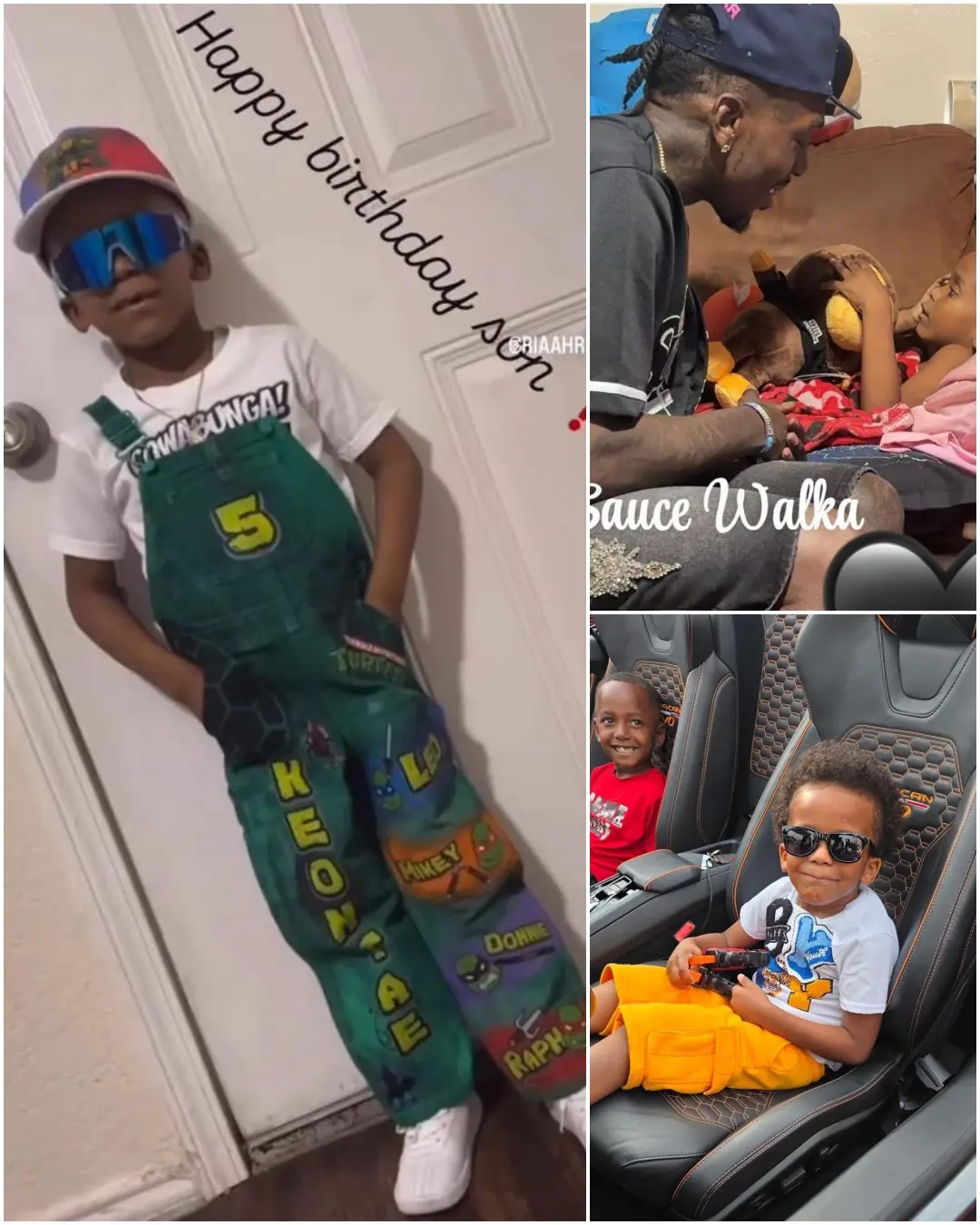
San Antonio Bids Farewell to Its Brightest Little Star

Champ the Two-Legged Chihuahua: A Tiny Hero Who Saved His Owner’s Life

When Dolphins Became Guardians: The Day Four Swimmers Were Saved from a Great White
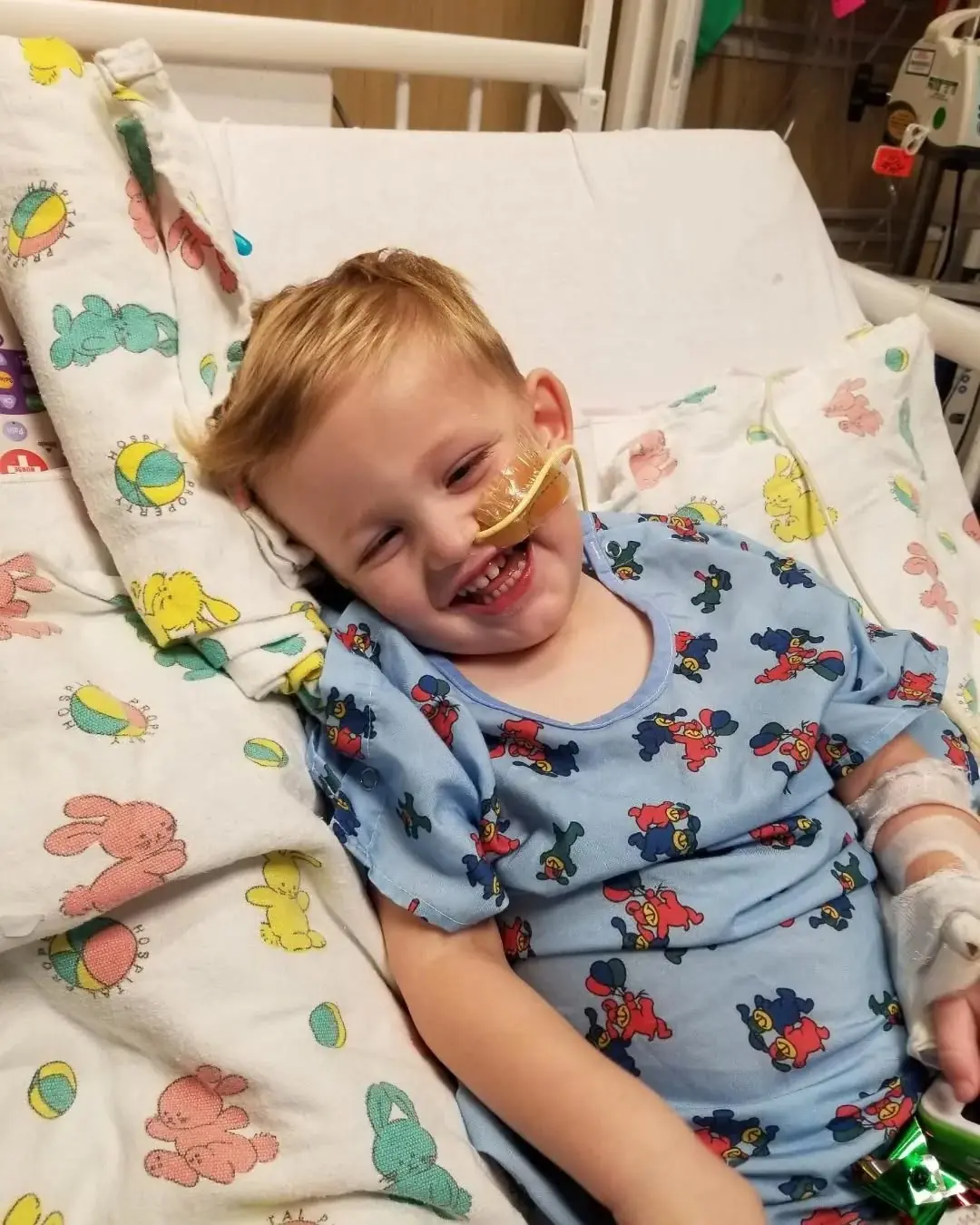
KEVIN’S MIRACLE: A LITTLE BOY’S COURAGE AND A FAMILY’S UNBREAKABLE HOPE 💛🎗️
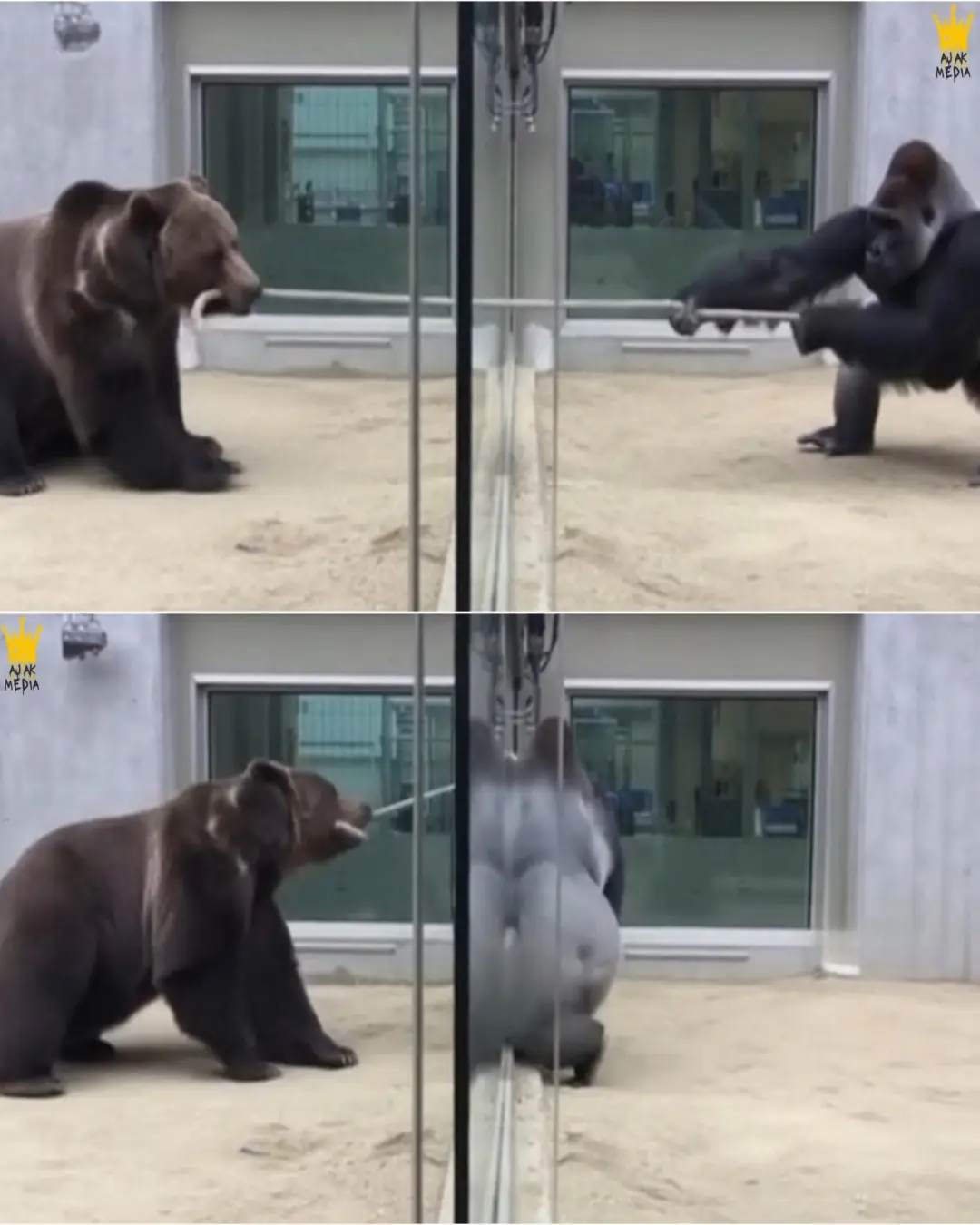
Illegal Zoo in Singapore Exposed as Hub for Underground Betting Ring

A Mother’s Desperate Plea: Help Save Milena’s Life Before It’s Too Late

The Woman Who Pulled Hope from the Mud.
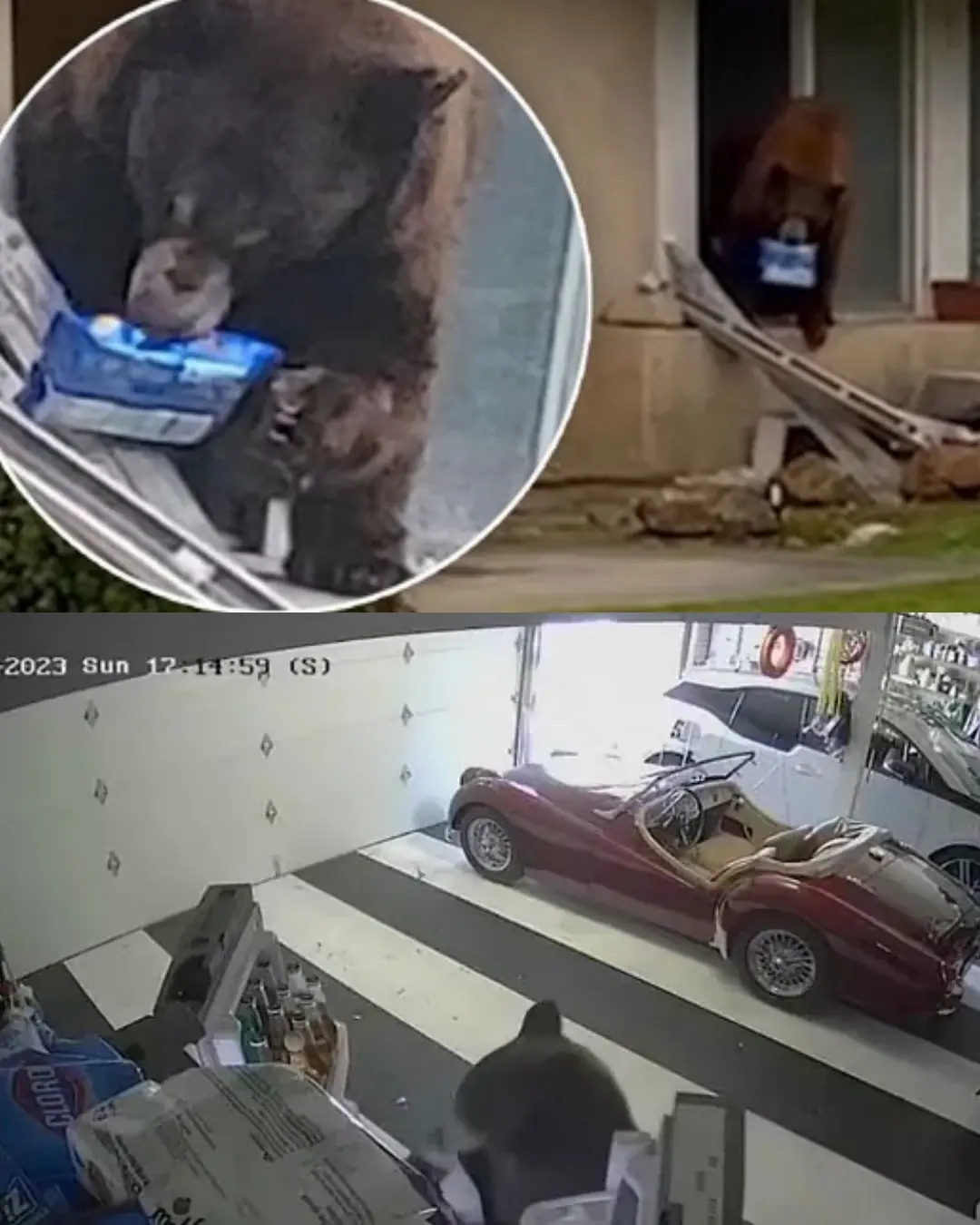
Oreo the Cookie-Loving Bear of Monrovia.
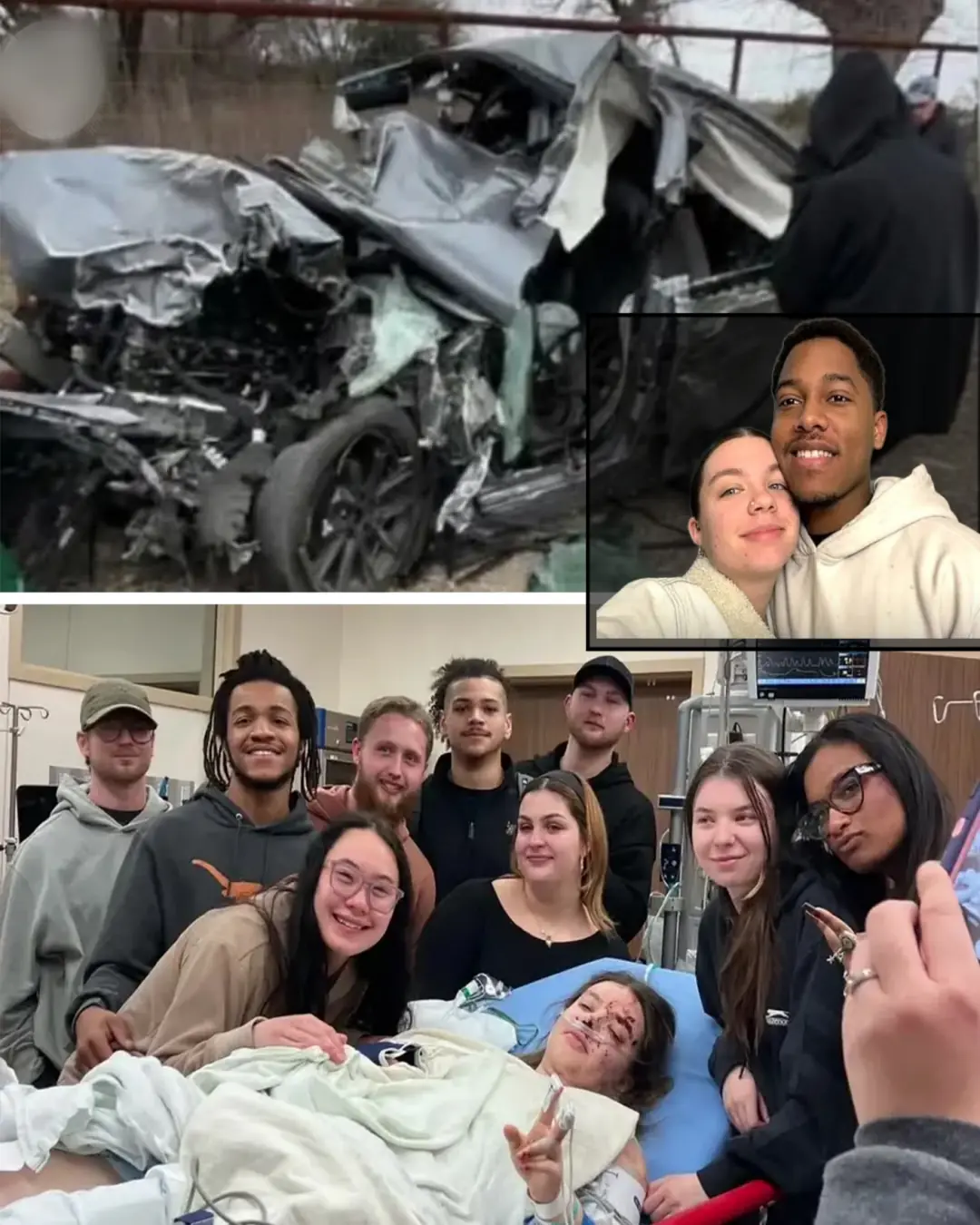
The Last Act of Love: Jaelen Green’s Heroic Promise
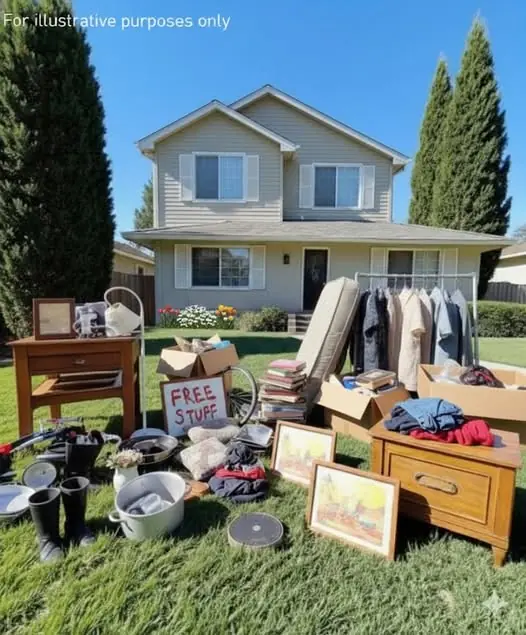
I Came Home to Find All My Furniture Tossed on the Lawn for Free – And Found the Perfect Way to Get Back at My
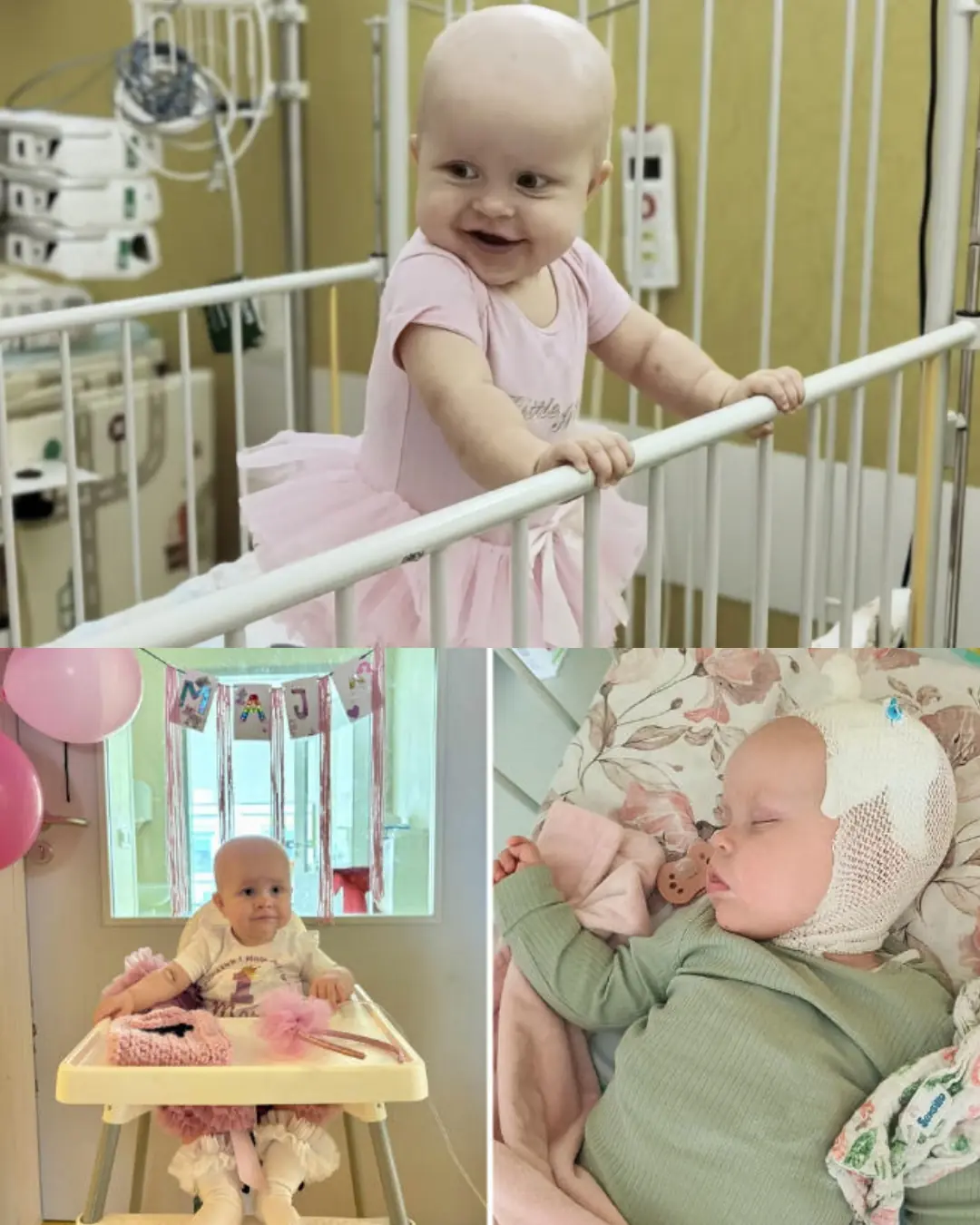
Help Little Maja Win Her Fight for Life
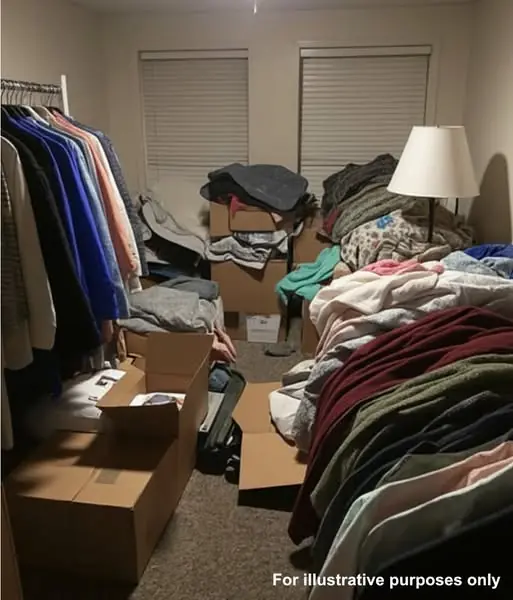
My In – Laws Used Our Guest Room as a Storage Unit for Years and Then Blamed Us for Moth Damage – We Had a Clever Way to Make Them Pay!

“Jesus Is Our Anchor”: Texas Parents Share Heartbreaking Update as Their Daughter Audrey Fights for Her Life 💔🙏
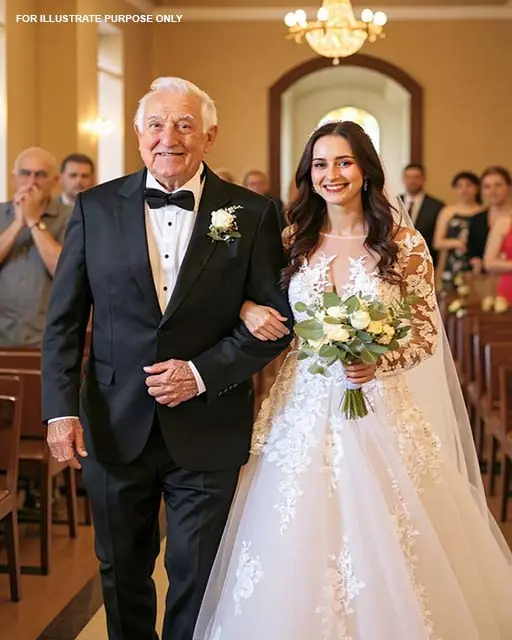
On My Wedding Day, My MIL Decided to Kick My Parents Out Because They ‘Didn’t Pay for It’ – But the Fallout From Her C.r..ue.l Decision Left Her Regretting It
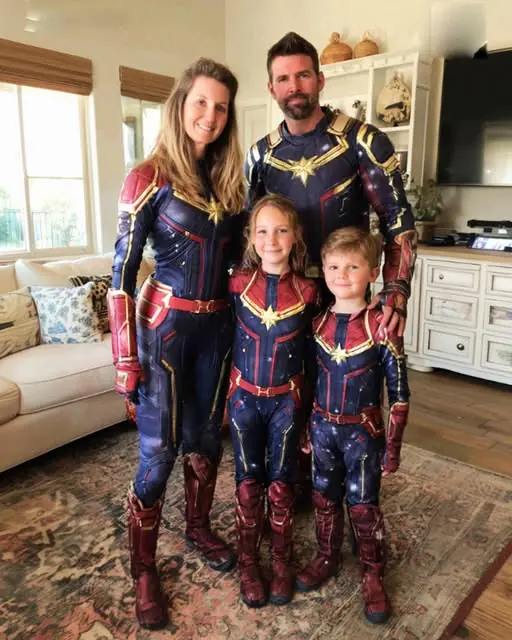
My Husband Traded Our Family of Four for His Mistress — Three Years Later, I Met Them Again, and It Was Perfectly Satisfyingg
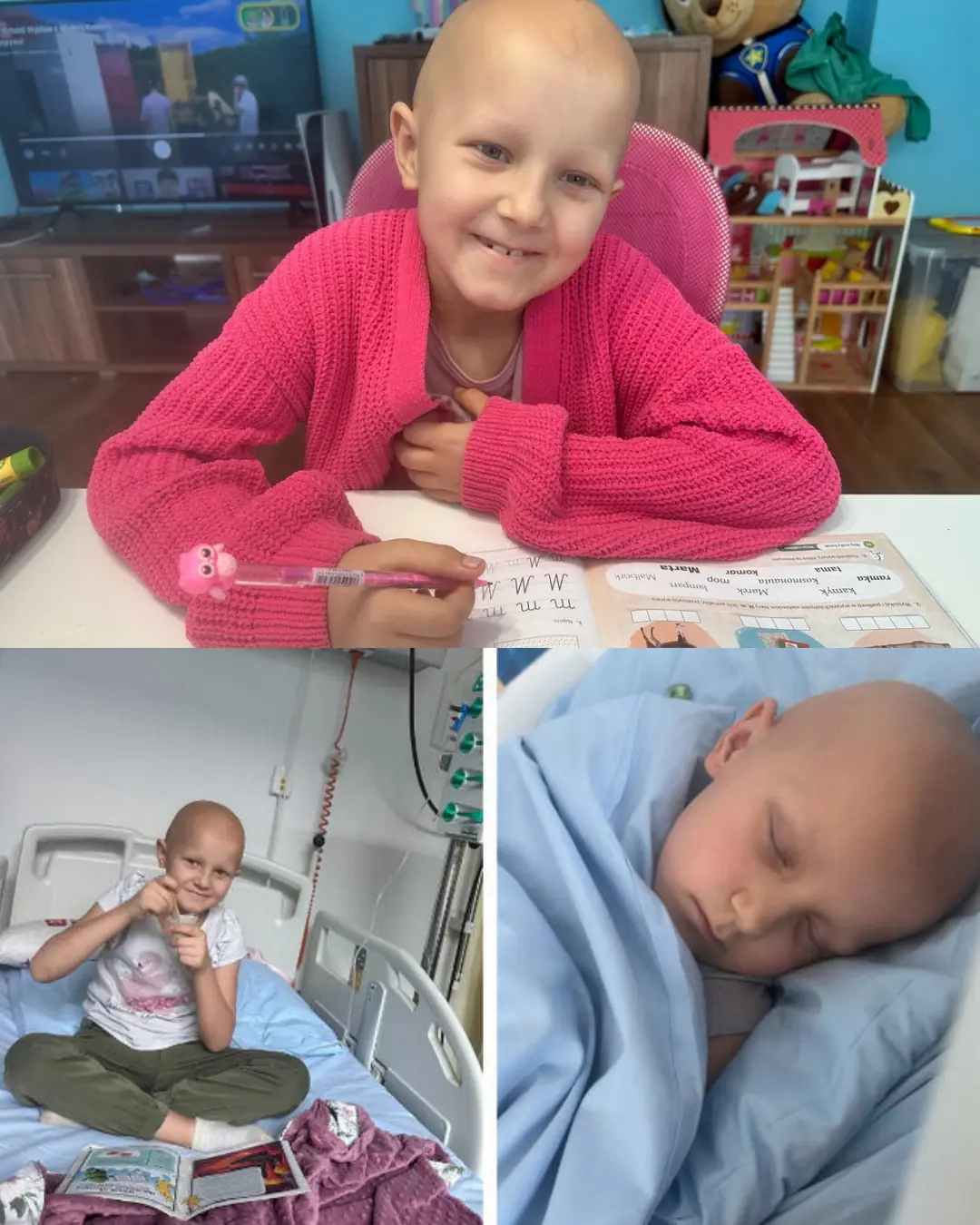
“She Lost a Kidney, But Not Her Courage” — Help Little Zuzia Win Her Fight for Life
News Post

The Stray Dog Who Stole Bread—and Won Hearts

Lulu Gribbin: One Year After the Shark Attack, A Message of Gratitude and Strength

Ginger, Watermelon, and Beetroot Juice: 15-Day Natural Kidney Cleanse

The air conditioner only has wind but is not cool. If you do this, it will be 'cold'. No need to call a costly technician.

Tips to preserve bamboo and wooden chopsticks all year round without mold

No need for sprays or incense, use this water and mosquitoes will disappear completely.

When cooking bitter melon soup, just add this one thing to ensure the dish is both delicious and nutritious.

Soak sea fish in this water, it is very effective in removing fishy smell.

Bought ginger and it withered not long ago. Follow these 3 methods to keep it fresh for half a year.

Place this bowl of water in the corner of the house: Mosquitoes will automatically stay away, and the whole house will be free of mosquitoes.

Life, Gratitude, and a Tiara: Stacy’s Story of Resilience

“Inch by Inch, Prayer by Prayer: A Mother’s Faith and a Family’s Fight to Bring Kain Home”

San Antonio Bids Farewell to Its Brightest Little Star

Champ the Two-Legged Chihuahua: A Tiny Hero Who Saved His Owner’s Life

When Dolphins Became Guardians: The Day Four Swimmers Were Saved from a Great White

KEVIN’S MIRACLE: A LITTLE BOY’S COURAGE AND A FAMILY’S UNBREAKABLE HOPE 💛🎗️

Illegal Zoo in Singapore Exposed as Hub for Underground Betting Ring

A Mother’s Desperate Plea: Help Save Milena’s Life Before It’s Too Late

What Happens to Your Body When You Stop Eating
